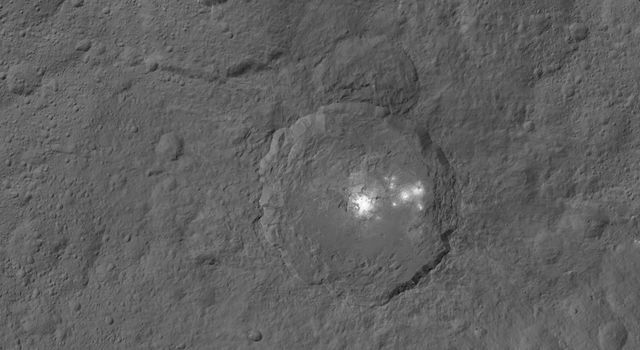News | October 26, 2015
Dawn Heads Toward Final Orbit

› Full image and caption
Dawn Mission Status Report
NASA's Dawn spacecraft fired up its ion engine on Friday, Oct. 23, to begin its journey toward its fourth and final science orbit at dwarf planet Ceres. The spacecraft completed two months of observations from an altitude of 915 miles (1,470 kilometers) and transmitted extensive imagery and other data to Earth.
The spacecraft is now on its way to the final orbit of the mission, called the low-altitude mapping orbit. Dawn will spend more than seven weeks descending to this vantage point, which will be less than 235 miles (380 kilometers) from the surface of Ceres. In mid-December, Dawn will begin taking observations from this orbit, including images at a resolution of 120 feet (35 meters) per pixel.
Of particular interest to the Dawn team is Occator crater, home to Ceres' bright spots. A new mosaic of images from Dawn's third science orbit highlights the crater and surrounding terrain.
More information on the Dawn mission is online at:



